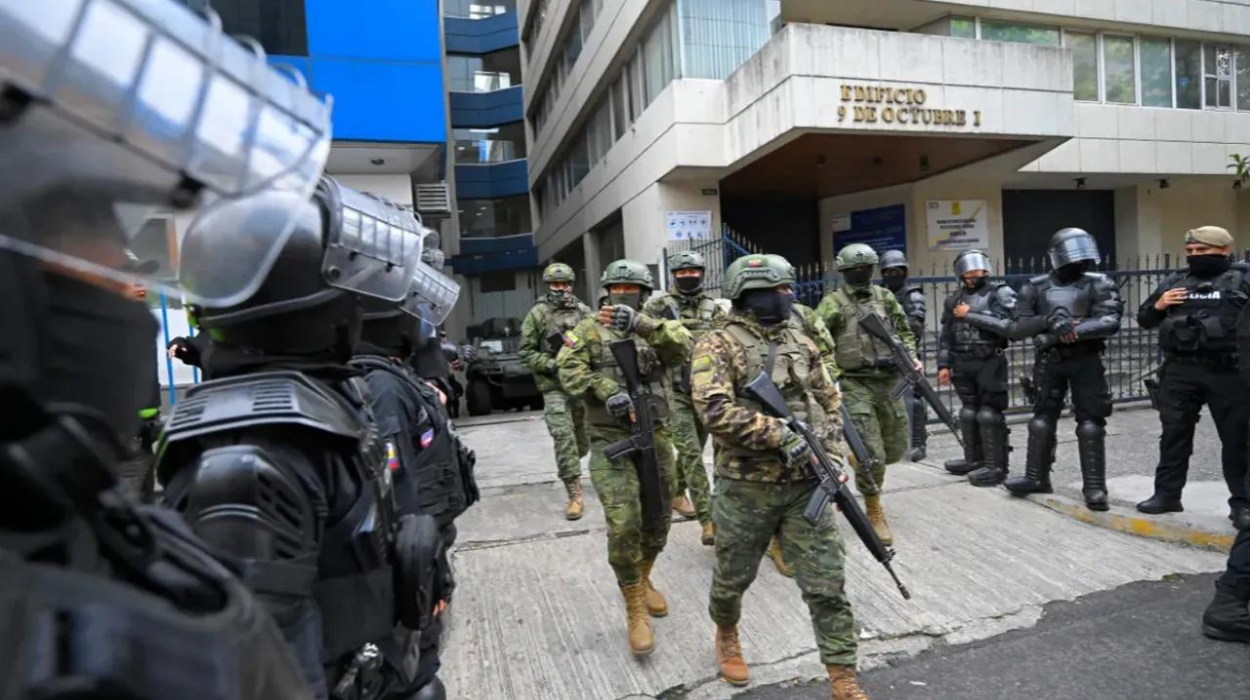Mexico (Transatlantic Today)— The High Representative of the European Union for Foreign Policy, Josep Borrell, has vehemently denounced the unlawful entry into the Mexican embassy in Quito, Ecuador. Borrell has called for strict adherence to international diplomatic laws in light of the incident that involved the detention of former Vice President Jorge Glas by Ecuadorian police officers.
Borrell stressed the violation of the 1961 Vienna Convention governing diplomatic relations and called for adherence to international diplomatic decorum in a statement made public via his official social media accounts.
Global Outcry
Mexico promptly severed diplomatic ties with Ecuador in response to the assault on its embassy, a move echoed by Nicaragua. The Mexican government considered the intrusion a violation of its sovereignty and international law. In addition, the United Nations Secretary-General Antonio Guterres, the United States Department of State, and various Latin American governments spanning political ideologies condemned the attack.
Jorge Glas was detained in Quito’s Flagrancy Unit after being expelled from the Mexican embassy. He was then moved to Guayaquil’s La Roca maximum-security jail. Glas is charged with embezzlement and has been convicted of bribery and illegal association in the past.
According to FinancialTimes, The Ecuadorian government, under Noboa’s administration, issued a statement emphasizing that the diplomatic immunities and privileges extended to the embassy had been misused, questioning the legality of Glas’ political asylum. The statement asserted the commitment to ensuring accountability for criminal actions.
Ecuadorian Government Challenges Legality of Glas’ Asylum in Mexican Embassy
The standoff between Ecuador and Mexico escalated when Glas sought refuge in the embassy in December, citing political persecution and legal manipulation. Mexico granted asylum to Glas amidst escalated tensions between the two countries, sparked by diplomatic expulsions and contentious remarks of domestic politics.
This incident sheds light on the complexities of international diplomacy and the challenges posed by the intersection of legal, political, and diplomatic spheres.


























